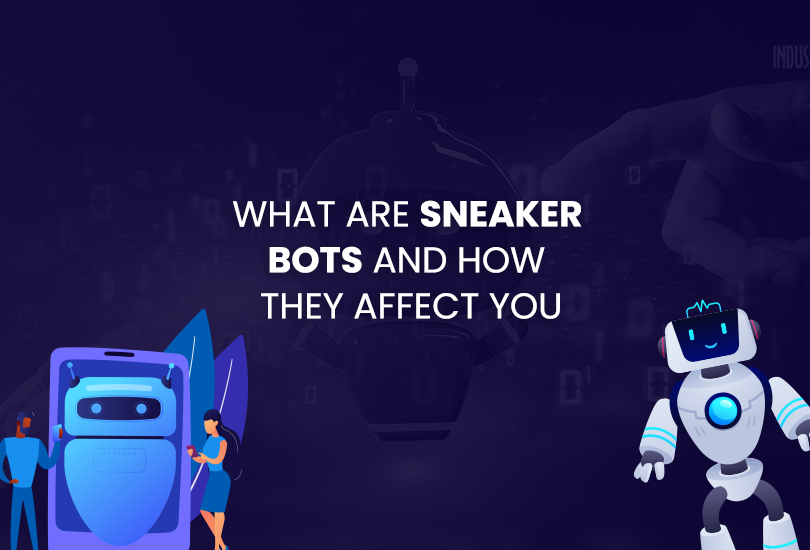It is quite difficult to pick a one-stop-shop cybersecurity tool for both commercial and domestic uses. A virtual private network can provide you with world-class encryption with complete anonymity and security over the internet. If your goal is to encrypt the internet traffic of every device connected to your internet, then choosing a hardware VPN can prove to be the best option. Hardware VPN offers better connection speeds for remote access. Meanwhile, software VPNs are more flexible and cost-friendly.
In this blog post, we will help you comprehend the difference between VPN hardware and software and which VPN option is better than the other. So, stick to the end.
What Is a Virtual Private Network?
VPN works as an intermediary between your device and the internet. It encrypts your internet traffic and routes your entire data traffic via its secure VPN tunnel. Moreover, it assigns you a new IP address, which makes your online presence anonymous over the internet. In short, a VPN, with its unique security features, allows you to surf, browse, and share privately over the internet.
What is VPN Hardware?
VPN hardware refers to a physical device designed to provide encrypted and private internet access across the network perimeter. These devices, such as VPN routers or appliances, encrypt data and establish a secure tunnel for transmitting information. VPN hardware offers enhanced security, scalability, and performance, making it ideal for organizations and individuals seeking robust privacy solutions. Unlike its client-based counterparts, VPN hardware ensures high-end security along with personalized connectivity.
VPN Hardware is quite famous among various commercial entities and allows them to have quite secure and private access to their internal networks. For instance, if you have to manage remote employees, branch offices, and other business partners, then having a physical VPN can come in handy with the required technological expertise.
Hardware VPN comes with the following components:
VPN Gateway or Router
The most important component inside the Hardware VPN is known as the VPN gateway or router! It works as an entry point for remote users with an aim to encrypt and decrypt information along with routing the internet traffic through a secure VPN server.
Network Interface Cards (NICs)
In order to enable network connectivity, the hardware VPN comes with another component called Network Interface Cards (NICs). However, it is an essential component that makes your device compatible with VPN hardware.
Network Switch
It performs cryptographic operations necessary to encrypt and decrypt users’ information transmitted through devices and private networks. Just like many software VPNs, the hardware VPN comes with an integrated 256-bit encryption to ensure you advance encryption from anywhere.
Redundancy
VPN hardware has redundancy features that make VPN operations accessible, especially when the VPN service stops responding. It works as a dual power supply and makes sure that all the components are working in any condition.
Management Interface
The management interface within the hardware VPN allows managers to configure VPN settings. You can set up VPN policies, monitor VPN connections, and manage other accounts while under the management interface.
Authentication Mechanisms
It prevents any unauthorized access to users’ accounts! Authentication mechanisms follow 2FA security checks to protect your confidential data.
Additional Security Features
Hardware VPN offers additional security features that you can use to prevent your online surfing from being tracked or traced by third-party intervention.
A load balancer
It is a type of mechanism within the hardware VPN to maintain the network distribution in a virtual cluster.
Benefits of Hardware VPNs
Hardware VPN comes with several advantages that we have described right below:
Improves Online Security
Hardware VPN has highly efficient hardware resources to provide you with the desired military-grade encryption and authentication. You can have enhanced protection mechanisms against cyber threats, ensuring the confidentiality and integrity of your digital landscape.
Handles High Traffic Load
Hardware VPNs can handle high traffic loads to upscale performance even during peak hours. With Hardware VPN, you can have faster data transmission speeds, lower latency, and improved network performance, making them suitable for large organizations with extensive connectivity needs.
Centralized Management
Hardware VPNs allow for centralized management. It enables administrators to easily configure, monitor, and control VPN connections across the network. However, it simplifies network administration, improves efficiency, and enhances security management.
Increased Performance
Hardware VPNs offer superior performance. With dedicated processors and hardware acceleration, they can handle complex encryption algorithms efficiently, resulting in faster and more responsive VPN connections.
Dedicated Hardware Resources
It comes with the best in-line hardware components. Having high-quality hardware ensures optimal performance and eliminates resource contention with other network services.
Availability & Redundancy Components
Hardware VPNs often include built-in redundancy features such as dual power supplies, redundant fans, and failover mechanisms. These components ensure high availability and minimize downtime.
Compatibility and Interoperability
Hardware VPNs are designed to work with various network protocols and devices. It ensures compatibility and seamless integration with existing network infrastructure. In addition to this, you can establish VPN connections with different vendors’ devices, enabling interoperability and flexibility.
Compliance and Regulatory Requirements
Hardware VPNs help organizations meet compliance and regulatory requirements by providing strong encryption and secure connections. They assist in maintaining data privacy and integrity, ensuring adherence to industry-specific standards and regulations.
Easy to Use for End Users
Hardware VPNs often offer intuitive user interfaces and straightforward setup processes. This user-friendly approach makes it easier for end users to connect to VPNs, minimizing the need for technical expertise and enhancing the overall user experience.
What is VPN Software?
VPN Software is a type of application program that you can use to establish a virtual yet secure connection between your device and the internet connection. When it comes to VPN software, you will have to set up its application software directly on your device, and it will form a secure and encrypted connection smoothly. You can run software VPNs on almost every operating system as it comes with specific apps dedicated to each operating system.
Benefits of Software VPNs
Software VPNs offer several advantages over hardware VPNs, making them a popular choice for many users.
Speed
When it comes to speed, Software VPNs offer a fast-paced VPN connection when compared with their hardware counterparts. You can expect to have efficient encryption and decryption of transmitted data through a VPN server.
Broader Server Range
Software VPNs often provide a broader range of server locations compared to hardware VPNs. With numerous server options available, users can easily connect to different countries. This feature can be helpful in bypassing geo-restrictions and accessing region-specific content.
Setup, Maintenance, and Updates
Setting up a software VPN is usually simpler and more straightforward than configuring hardware VPNs. Software VPNs often come with user-friendly interfaces and automated installation processes, requiring minimal technical expertise. Additionally, software VPNs can be easily updated with the latest security features and patches, ensuring users have the most up-to-date protection.
Remote Access
Software VPNs enable remote access to networks, allowing users to connect to their organization’s resources from any location securely. This is particularly beneficial for remote workers who require secure access to company servers and files.
Price
Software VPNs are often more cost-effective than hardware VPNs. They eliminate the need to purchase dedicated VPN hardware, reducing upfront costs. Additionally, software VPNs often offer flexible subscription plans, allowing users to choose the desired features and pay accordingly.
Does a VPN Require Special Hardware?
Not every VPN requires a special hardware integration, except for those holding business organizations!
Hardware VPNs can prove to be one of the best security solutions for organizations looking for multiple simultaneous connections. In addition to this, if your company has remote employees, including the branch offices, then you can surely enhance your online safety with hardware VPN.
When it comes to software VPN, it doesn’t require any special hardware integration; rather, you can simply download the app and connect with it using a simple connect button. If you want quite a significant number of connections, then we recommend you go for hardware VPN options, as it can provide unlimited connections to meet your requirements.
Hardware VPN vs. Software VPN
Here’s a comparison table highlighting the features of Hardware VPN and Software VPN:
| Features | Hardware VPN | Software VPN |
|---|---|---|
| Deployment | Requires dedicated hardware devices | Installed on existing devices or servers |
| Scalability | Limited scalability, requires additional hardware for expansion | Can scale easily by adding more software licenses or server capacity |
| Performance | Typically provides higher output and lower latency due to dedicated hardware | Performance depends on the processing power and resources of the host device |
| Security | Offers robust security with dedicated encryption chips and tamper-resistant hardware | Security depends on software implementation and hosting device security |
| Configuration | It may require technical expertise to configure and manage | Configurable through software interfaces, often with user-friendly GUIs |
| Maintenance | Requires periodic firmware updates and hardware maintenance | Software updates can be easily applied, and maintenance is generally easier |
| Cost | Typically, higher upfront costs are due to hardware investment | Lower upfront costs, but recurring software license fees may apply |
| Flexibility | Less flexibility in terms of reconfiguration or changing network topologies | Highly flexible, allows easy reconfiguration and adaptation to changing needs |
| Compatibility | Can integrate with various network infrastructures | It can work on various operating systems and devices but may require specific software |
| Redundancy | This may require additional hardware for redundancy and failover | Software-based redundancy and failover options are available |
Conclusion
Although the above-mentioned features can vary based on specific hardware and software VPN solutions available in the market, one’s personal choice between hardware and software VPN depends on one’s needs and requirements. However, I suggest you precisely comprehend the size of your network, performance needs, and budget constraints.







